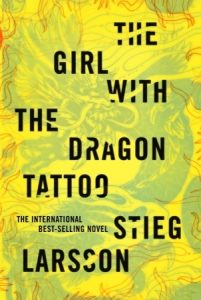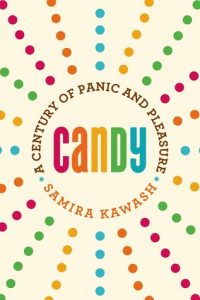 There was this interesting LitHub article that came out a little while back On the Rise of Scandinavian Crime Fiction, which got me to thinking about the Millenium series by Stieg Larsson (of which there are now two more books written by David Lagercrantz: The Girl in the Spider’s Web and The Girl Who Takes an Eye for an Eye). Given that crime fiction isn’t my specialty, when I first read the article, I have to say I wasn’t too surprised, seeing as I could easily call to mind at least a few Scandinavian authors just from my travels through our collection: Larsson, Nesbø, Fossum, to name a few. And with a quick search, there are at least a few more names I recognize, even if I’m not familiar enough to recall them or know much about them (which is not to say I know much about the three aforementioned): Mankell, Indriðason (though I suppose he’s technically not Scandinavian, but Iceland’s Nordic, so close enough!), and Sigurðardóttir (ditto), for example. (There was another article specifically on the emergence of the portrayal of sleepy Reykjavik as a criminal hub in Icelandic fiction.) What’s really interesting, though, is the – not absence, but – relatively low crime rates found in those countries, especially in comparison to North America*. For an area with relatively low crime rates**, and considering Nordic countries are always on the top spots in terms of happiness worldwide, Nordic noir sure is booming – what’s the deal?
There was this interesting LitHub article that came out a little while back On the Rise of Scandinavian Crime Fiction, which got me to thinking about the Millenium series by Stieg Larsson (of which there are now two more books written by David Lagercrantz: The Girl in the Spider’s Web and The Girl Who Takes an Eye for an Eye). Given that crime fiction isn’t my specialty, when I first read the article, I have to say I wasn’t too surprised, seeing as I could easily call to mind at least a few Scandinavian authors just from my travels through our collection: Larsson, Nesbø, Fossum, to name a few. And with a quick search, there are at least a few more names I recognize, even if I’m not familiar enough to recall them or know much about them (which is not to say I know much about the three aforementioned): Mankell, Indriðason (though I suppose he’s technically not Scandinavian, but Iceland’s Nordic, so close enough!), and Sigurðardóttir (ditto), for example. (There was another article specifically on the emergence of the portrayal of sleepy Reykjavik as a criminal hub in Icelandic fiction.) What’s really interesting, though, is the – not absence, but – relatively low crime rates found in those countries, especially in comparison to North America*. For an area with relatively low crime rates**, and considering Nordic countries are always on the top spots in terms of happiness worldwide, Nordic noir sure is booming – what’s the deal?
All posts by Karen
IFOA & International Open Access Week
I have 2 exciting events/festivals that are taking place in and around this week to tell you about and precious few graphics to go with both of them, and I didn’t want to write two separate posts since they happen to overlap quite a bit, so here goes:
- IFOA (Oct. 19 – 29), and
- International Open Access Week (Oct. 23 – 29)
OK. Let’s go in order. What’s IFOA, and how can you participate? IFOA is the International Festival of Authors, and the festival portion of it takes place at the Harbourfront Centre from October 19 to October 29. What you can hope to sit in on are “readings, one-on-one interviews, thought-provoking panel discussions, special events and free book signings” (ifoa.org, emphasis in original). You can view the full schedule of events here, take a look at all the participants this year, and find out more about the festival in general here.
And that’s not all! IFOA also has a weekly reading series that takes place from September to June. And if you’re not in Toronto this week or can’t make it to the festival events this time, have no fear: Lit on Tour is here! This is IFOA travelling all over Ontario (or well, 19 locations) from the beginning of October to the end of November. Check out the full list here.
You can also take a look at Word Alliance for other literature festivals around the world!
Candy
 So it’s October, and frightfully close to Halloween (may I interest you in our Halloween Spooktacular?), so I figured I’d cover something topical – Candy: A Century of Panic and Pleasure by Samira Kawash – because whether you celebrate All Hallow’s Eve or not, you’ll likely find it nigh impossible to avoid the sight of candy as the day nears.
So it’s October, and frightfully close to Halloween (may I interest you in our Halloween Spooktacular?), so I figured I’d cover something topical – Candy: A Century of Panic and Pleasure by Samira Kawash – because whether you celebrate All Hallow’s Eve or not, you’ll likely find it nigh impossible to avoid the sight of candy as the day nears.
While I suppose it would be difficult to make any discussion of candy dull and boring, Kawash does an especially wonderful job keeping the writing lively and inserting a dose of her personality in every chapter as she takes us along the history of candy in North America. The incredulity with which she introduces a rather sophistic argument from a party advertising candy as an entirely wholesome and nutritious food will crack you up, and her exasperation at finding so little information about candy in what look to be promising tomes of histories about food in America is palpable. That being the case, though, she makes sure to write in their defence where it’s due, as when pointing out that information about nutrition was woefully incomplete then, which lets the reader have a better understanding of the times and perceptions. Kawash’s tongue-in-cheek attitude while discussing the history of candy is fitting, and the ambiguities she talks about as to what even constitutes candy, and how arguments for and against candy have at points not made much sense or – even worse – built on the exact same “evidence”, is delightful.